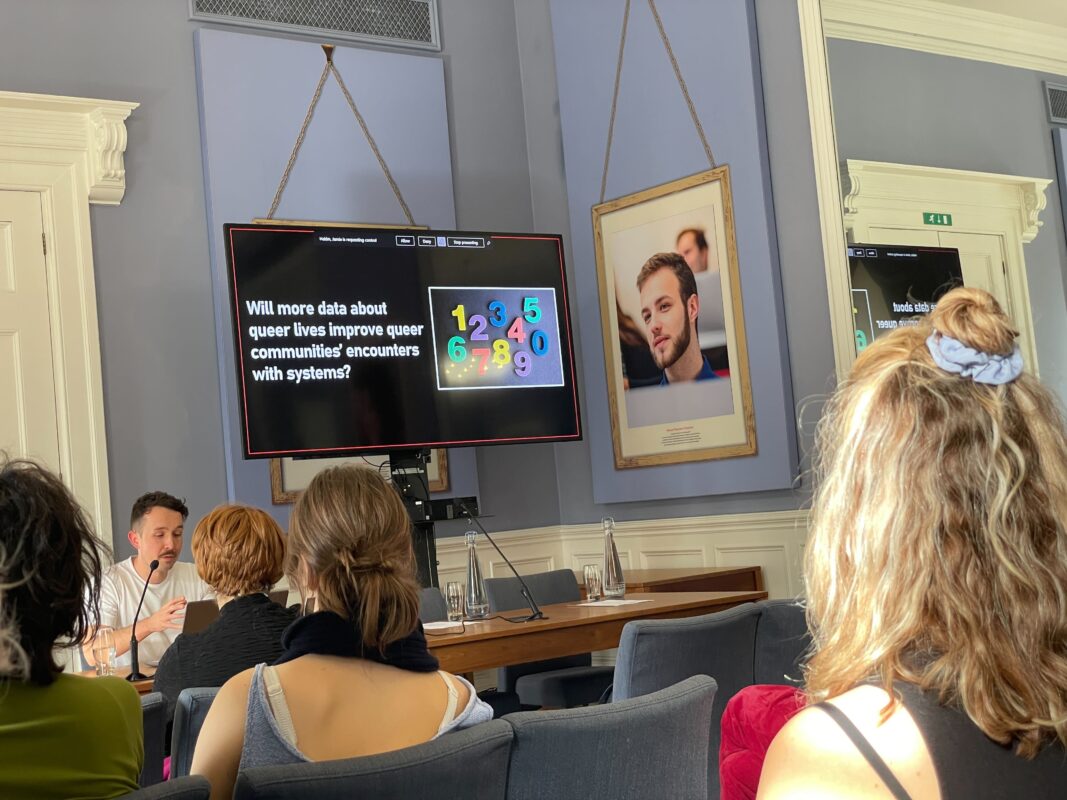In late October, I travelled to London for the Queering Digital Cultures symposium, which aimed to interrogate therelationship between queerness and digital systems of knowledge production. The speakers and audience members were a diverse mix from academia, art, games, ethical tech and government.
Sadly, I had to miss the latter part of the event due to my laptop dying days before my book edits were due and the need to get it fixed. However, the keynote and panel I did catch were fascinating and led me down many interesting rabbit holes that will contribute to my future work.
Alexander Monea of George Mason University, author of The Digital Closet, spoke on the topic of How The Internet Became Straight. His empirical research into search and content moderation algorithms and their effects demonstrates how the perceived alignment between queerness and pornography is literally coded into the way LGBTQIA+ identities are categorised and represented online. Exclusion, discrimination and hypocrisy are part of the systems we are forced to interact with every day.
Kevin Guyan, author of Queer Data, explored the limitations of current data practices in their reflection of LGBTQ+ lives and argued eloquently for building new systems that are fit for purpose and explicitly fight for social justice instead of trying to retrofit existing practices to marginalised people. That really spoke to what we are trying to do at ODM with the challenges in our strategy and the projects we work on.
Gaspard Pelurson works at the intersection of queer and game studies and took a playful and more theoretical approach to his presentation. Wandering Through Paths and Pixels:
Game Flânerie & Queer Mending Practices was a fascinating talk that made me think about the purpose of game spaces, queer time and mapping and whether moving at different speeds through the world is about more than mobilities and motivation. His article about The Path is well worth reading.
All of these talks raised questions and frustrations about current systems and practices but also were bold enough to imagine a future that tore down the existing infrastructures for a radically inclusive future. I’ve got a lot of reading to do…

